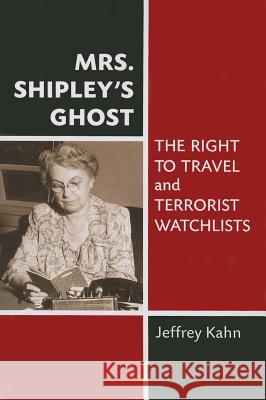Mrs. Shipley's Ghost: The Right to Travel and Terrorist Watchlists » książka
Mrs. Shipley's Ghost: The Right to Travel and Terrorist Watchlists
ISBN-13: 9780472035878 / Angielski / Miękka / 2014 / 360 str.
Today, when a single person can turn an airplane into a guided missile, no one objects to rigorous security before flying. But can the state simply declare some people too dangerous to travel, ever and anywhere? Does the Constitution protect a fundamental right to travel? Should the mode of travel (car, plane, or boat) or itinerary (domestic or international) make a constitutional difference? This book explores the legal and policy questions raised by government travel restrictions, from passports and rubber stamps to computerized terrorist watchlists. In tracing the history and scope of U.S. travel regulations, Jeffrey Kahn begins with the fascinating story of Mrs. Ruth Shipley, a federal employee who almost single-handedly controlled access to passports during the Cold War. Kahn questions how far national security policies should go and whether the government should be able to declare some individuals simply too dangerous to travel. An expert on constitutional law, Kahn argues that U.S. citizens' freedom to leave the country and return is a fundamental right, protected by the Constitution.











